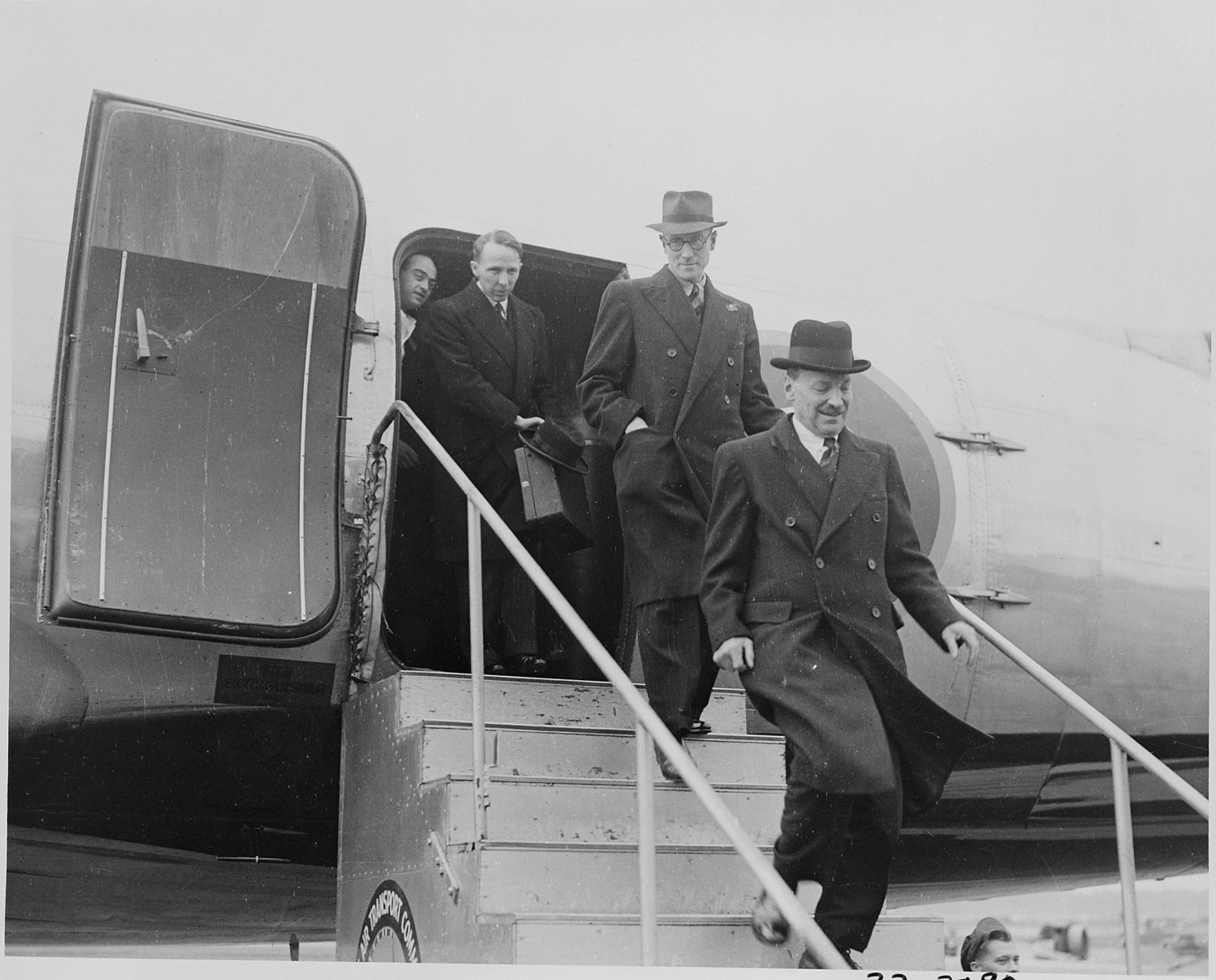Starmer’s choice
Seismic political shifts can reshape the nation. It’s up to the Labour leader to seize the moment, writes Francis Beckett
During the 1979 election, James Callaghan told an aide: “There are times, perhaps once every 30 years, when there is a sea change in politics. It then does not matter what you say or what you do. There is a shift in what the public wants and what it approves of.”
He thought he was in the middle of one of them, and he was right. I reckon there were five such moments in the 20th century, and Keir Starmer could well be swept to power in the first of the new millennium.
If that’s right, what should he do with it? He could learn something from the use to which the five previous beneficiaries put their landslide victories.
The 20th century’s five were the Liberal landslide of 1905 and the Conservative one of 1931; Attlee’s Labour landslide in 1945, Thatcher’s Conservative one in 1979, and Blair’s for Labour in 1997. These are moments, not just of a change in government, but of a change in what is politically possible. They have enormous potential, if the party that benefits is ready to grasp it.
The Liberals in 1905 were led by Sir Henry Campbell-Bannerman, one of the greatest radical reformers ever to occupy 10 Downing Street, second only, in my view, to Attlee. He thought the poverty to be found in Britain’s cities made the nation’s wealth valueless.
He introduced the first free school meals, strengthened the power of the trade unions, established supervision within the community for young offenders as an alternative to prison, and extended compensation for industrial injury. The first old age pension was put in train by Campbell-Bannerman just before his death in 1908, and his successor Herbert Asquith and Chancellor David Lloyd George then produced the famous 1909 People’s Budget, imposing unprecedented taxes on the lands and incomes of Britain’s wealthy to fund social welfare programmes. Campbell-Bannerman and Asquith made the most of the new mood that had given them office.
The 1931 National Government (essentially a Conservative government) decisively ended the tentative moves towards greater equality, and the poor became even poorer than they were in the previous decade. It restored the status quo, which was then dramatically shattered by the century’s third political sea-change, Labour’s 1945 victory.
The Attlee government took over where Campbell-Bannerman had left off. The NHS, council housing, the welfare state, nationalisation of key industries, and the implementation of the 1944 Education Act were responsible for the most dramatic improvement in the quality of life of ordinary people under any government, before or since.
We lose sight of that, because we can no longer talk to people who were adults in the 1930s. But I remember my grandmother, who wrote like a five-year-old because she had never been taught properly; and who, in the 1930s, widowed by the first world war, kept a jar full of pennies on a shelf, against the day when one of her daughters might need to see a doctor.
The Attlee government turned us into a civilised society. Thirty-four years later, in 1979, the Thatcher government set about turning us back again, and at least partially succeeded. And in 1997, another sea change put Labour and Tony Blair in charge with an even bigger majority than Attlee’s.
The Blair government did do a few useful things, such as the minimum wage, and it was a lot better than having another Conservative government. But it did not seize the opportunity, as Campbell-Bannerman, Attlee and Thatcher had all done, to turn the super tanker round. It seemed to believe in the essentials of Thatcherism, such as that there is nothing the public sector can do that the private sector cannot do better, and that trade unions should be kept firmly in their place.
Keir Starmer’s expected 2024 victory could be the first sea change of the new century. So whether Starmer is an Attlee or a Blair matters terribly.
Attlee’s politics were rooted in the poverty he had seen in East London. He believed capitalism had made a brutally unfair society, and the job of a Labour government was to unmake it, and make a fair society.
I’m told Starmer talks much more to Gordon Brown than he does to Tony Blair, which is encouraging. Interviewing him for the New European in 2020, I came away with the impression of a man who is instinctively radical. Despite his brutal treatment of the left, he has quietly kept on some of Corbyn’s staff, and Corbyn adviser Andrew Fisher wrote in LabourList that Starmer’s conference speech “owed more to former shadow chancellor John McDonnell or former leader John Smith than Tony Blair.”
Blair could never have said, as Starmer did in Liverpool: “If they want to fight us on redistribution, if they want to fight us on workers’ rights… we will take them on – and we will win”.
Starmer’s team announced a National Wealth Fund putting public investment into new industry and taking a public stake – creating new publicly owned industries. Shadow Levelling Up Secretary Lisa Nandy said the next Labour government’s mantra would be “council housing, council housing, council housing”. “No more buy-to-let landlords or second homeowners getting in first,” said Starmer.
“Don’t forget, don’t forgive” the Tories for cutting taxes for the rich, he said, a change from the days when Peter Mandelson was “intensely relaxed about people getting filthy rich.” Starmer says he will tax the rich, repeal anti-union laws, regulate landlords and water companies, and partly bring the railways and energy into public ownership.
But there will be siren voices to tell him that, desirable as these things might be, we are in an economic crisis, and radical measures will have to wait. Those same voices were there in 1945, and no economic crisis today can match the war-wrecked economy Attlee inherited. And he had not been in office two months when President Truman abruptly ended lend-lease, the system by which America could supply its allies on the never-never. To stave off complete collapse, Attlee sent Maynard Keynes to Washington to negotiate a loan, a task made harder by the horror with which many in Congress regarded Attlee’s programme.
Now the job Attlee did will have to be done all over again. Does Starmer have the fire that burned discreetly beneath Attlee’s three-piece suit?
His politics, like Attlee’s, are rooted in hardship – that of his own family. As a young lawyer he went to the picket lines during the print unions’ dispute with Rupert Murdoch’s News International. When I interviewed him, I asked him about education – not his specialist subject, but he knew where he stood: “I’m a supporter of comprehensive schools and our boy has just gone to a comprehensive school and it is where our daughter will go.”
To be an Attlee, he needs Attlee’s discreet but rock-hard self-belief. Attlee’s decision-making was like a steel trap. He never revisited his decisions, and he claimed never to have lost a night’s sleep over a decision. He was “the best butcher since the war” wrote Harold Wilson. A famous Attlee story has a minister answering a summons to see the prime minister to find that he had been called in to be fired. What was wrong, he asked? “Not up to it” said Attlee, and that was that.
Starmer looks as though he may have that, though so far his ruthlessness has only been evident in his relentless and merciless war on what remains of the Corbyn faction.
He will need another Attlee quality: a genuine belief that he is nothing without the Labour Party. Attlee once wrote to Harold Laski that he had “neither the personality nor the distinction to tempt me to think that I should have any value apart from to the party which I serve.” Tony Blair, on the other hand, claimed in his memoirs to have built a link with the people over the head of his party.
And Starmer? Ask me again when he’s been prime minister for a while. But he sounds grounded. I’m hopeful.
Image credit: Abbie Rowe, Public domain, via Wikimedia Commons
Image credit: Wim van Rossem for Anefo, CC0, via Wikimedia Commons

